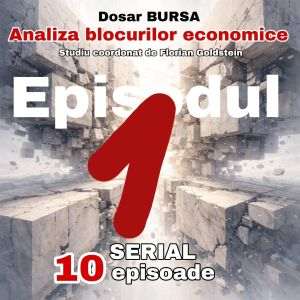Out of the approximately 7.5 million voters who attended the vote on Sunday, - almost 400,000 more than in the previous parliamentary elections - 4.3 million voted for the USL. Such a clear victory of the USL does not leave Traian Băsescu with much room to maneuver in the consultations for appointing the prime minister, and the potential alliance between the USL and the UDMR further restricts his movements. 2012 debuted as a year of street protests against Traian Băsescu and seems to end with his complete loss of legitimacy. Even though it's been a complicated electoral year, and the economic and social crisis, could have been a good opportunity for relaunching the ideological debate in Romania, the entire debate focused on the role and the place of the one who still views himself as a player, but he has become a prisoner inside the Cotroceni palace: a prisoner of his own pride, a prisoner of a non-consensual political model, a prisoner of austerity for the sake of austerity, but also a prisoner of a non-political vision about society.
Sure, Traian Băsescu is still Romania's president, but after three successive defeats, in the local elections, in the referendum (because 89% of the votes against him is the equivalent of a crushing defeat) and in the legislative elections, his position is precarious. And the strategic line, which seems to have originated from Cotroceni and which bet on populism for taking away from the party of Dan Diaconescu the votes of those who disliked the USL, has placed the PDL in one of the most difficult situations. Given the circumstances, the appointment of the prime-minister, should be a formality, provided that the politicians' reason will prevail at the last minute.
His entire political strategy - the so-called reform of the state - enacted after 2005 in order to compromise the opponents and the "hostile" institutions (parliament, government, political parties), is not only showing its limitations, but it has also heavily backfired against the one who was hoping to remodel Romania. With a hostile Parliament, with a society who rejects him, Traian Băsescu is now living the drama of those who are unable to understand the essentially consensual character of democratic policy.
It is precisely at this point that the USL could change the majority-based direction which Traian Băsescu has imprinted on Romanian politics. The illusion of the majority has brought Traian Băsescu to the current deadlock, one which he could push the country into as well if he sticks to his scenario of being constantly in conflict with the USL.
The attempt to build artificial majorities - by pressuring the Parliament to force the support of the Boc government, after the latter's controversial reappointment in 2009, as well as through the attempt to turn the Parliament into an appendix of an Executive under the power of the president by amending the Constitution and the electoral system - has failed. For the time being, at least!
On the other hand, after these telling results, the responsibility of the USL is directly proportional to the extent of its victory. And the consensus it may build does not concern only the political players, but the social, economic or civic players as well, which together can determine that common denominator of the public interest.
Sunday's vote was a vote against a man and the plan he represents.
After a year where the political tension has touched almost all of Romania, one question still remains: will the USL succeed in setting the prisoner of the Cotroceni palace free?
















































